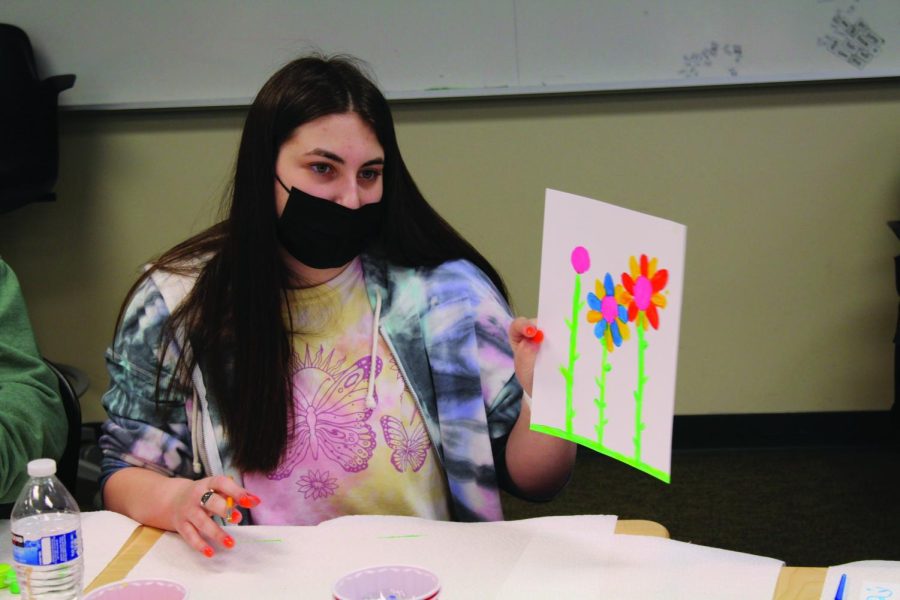Mindfulness presents benefits
Inhaling for three counts, holding for three more and exhaling is a form of meditation called box breathing used to slow down breathing and decrease stress. This is how senior Lauren Brodsky, president of Mindfulness Club, starts some of the club’s meetings.
“Meditation can be anything,” said Brodsky. “It doesn’t have to be a video. You don’t have to do it with a guide.”
“You can just sit by yourself and take some deep breaths, and that helps you slow down so that you’re ready to do some schoolwork,” Brodsky said.
Lindsay Foreman, program coordinator of the University of Vermont Mindfulness program, said in a phone interview that mindfulness meditation is one type of meditation, but mindfulness itself does not need to be done sitting still in a formal setting.
“Mindfulness is a way of paying attention that you can bring into any aspect of your life,” said Foreman. “You can be practicing mindfulness as you’re walking down the hallway, going into your next class or while you’re doing a sport.”
When people practice mindfulness they are training to be more in the present moment, Foreman said.
In Mindfulness Club, Brodsky practices grounding exercises and other mindfulness activities such as drawing, answering reflection questions and mindful eating, which is closely observing the taste and texture of food while chewing.
These exercises help with slowing down and concentrating on the present moment in stressful situations, Brodsky said.
According to Foreman, refocusing on the present allows the body to settle and use less energy on figuring out things that are not happening in the moment.
“For example, if I’m worrying about a test I took earlier, there’s actually nothing I can do about that in the moment,” said Foreman. “My mind thinks I’m doing something productive, but there’s nothing I can actually do about a test I already took.”
“So coming back into the present moment gives us that awareness that this is actually the only moment we can really have any influence over,” Foreman said.
According to Brodsky, mindfulness makes her feel less stressed, which increases her productivity and helps her avoid feeling overwhelmed.
“It’s hard to take time for yourself because life can get really chaotic, especially being a high schooler,” said Brodsky. “But I don’t think there [are] any cons to meditating.”


